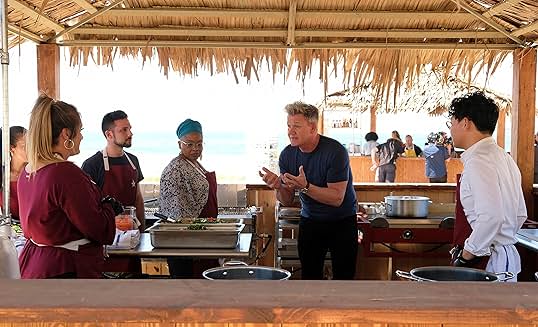
In the early 2000s, cooking shows were often polite affairs — calm presenters, tidy counters, and measured tones. Then Gordon Ramsay stepped onto the set, and the genre was never the same again. His arrival brought an energy, urgency, and drama that turned food television into must-watch entertainment.
Ramsay’s breakout series, Hell’s Kitchen, introduced viewers to his no-nonsense style. Contestants battled under relentless time pressure, navigating the heat of the kitchen and Ramsay’s famously blistering critiques. The format was raw, unpredictable, and addictive. Viewers tuned in not just for the food, but for the human drama — the triumphs, the meltdowns, and the occasional redemption arcs.
From there, Ramsay expanded his TV footprint with Kitchen Nightmares, a series in which he visited struggling restaurants, diagnosing problems and delivering tough-love makeovers. The show blended culinary expertise with business insight and human storytelling. Watching Ramsay transform failing kitchens into thriving businesses was as satisfying as any perfectly plated dish.
His role as host of MasterChef and MasterChef Junior showcased a different side — still competitive and demanding, but with moments of warmth, especially toward young contestants. The format allowed him to mentor and inspire, proving that beneath the fiery exterior was a genuine passion for helping others succeed.
Other projects, like 24 Hours to Hell and Back and Gordon Ramsay: Uncharted, expanded his television brand further. The former intensified the restaurant rescue format, while the latter took him around the globe, exploring local cuisines and immersing himself in cultural traditions.
What makes Ramsay’s TV empire so powerful is its range. He can be the stern taskmaster in one show, the empathetic guide in another, and the adventurous explorer in yet another. This versatility has kept audiences engaged for decades and has helped redefine what a cooking show can be.
Through his television work, Ramsay has become more than just a chef. He is a global entertainer, a storyteller, and a brand in his own right. His shows are as much about people as they are about food, and that human connection is what keeps viewers coming back season after season.
